Online group supports parents coping with child allergies
- Published
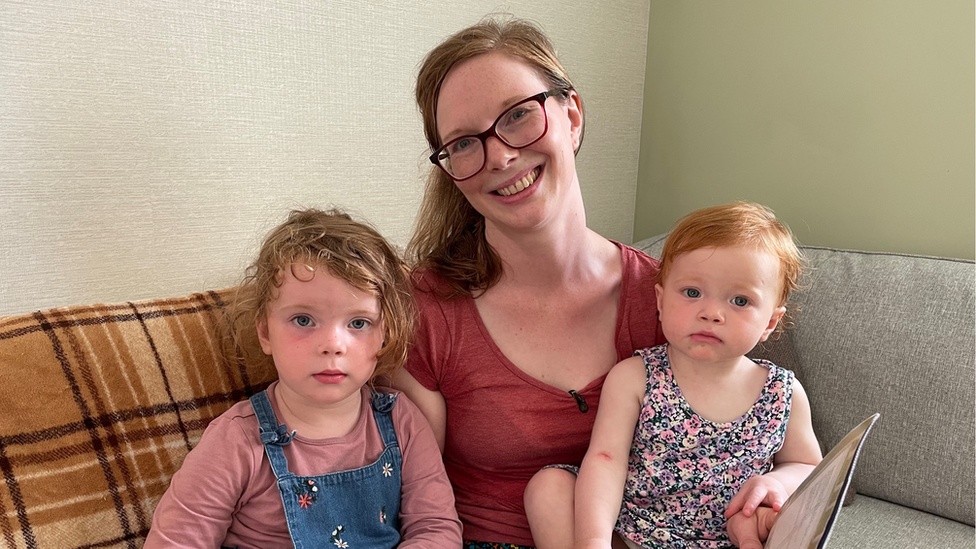
Claire Stone, with her daughters Connie and Pippa, set up the group to support other parents
A mother has set up a support group for parents coping with child allergies, offering them a "safe place to share".
Mother-of-two Claire Stone, from Thorndon, Suffolk, started Pippa Friendly to help other families in the same boat as herself.
Her 15-month-old baby Pippa is allergic to several foodstuffs, including the "top three" - milk, eggs and peanuts.
"It's not a choice," she said. "I don't want anyone else to feel as isolated as I did."
The Facebook group, external, which she started in June, has already grown to a membership of 170 families, with parents sharing recipes and tips on coping with children with multiple allergies and intolerances.
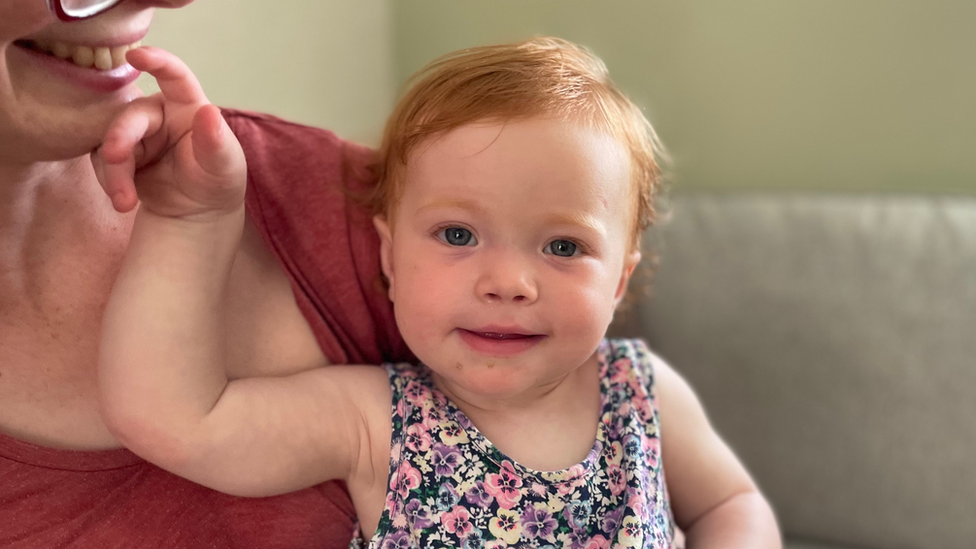
Pippa has several food allergies, including the "top three" - milk, eggs and peanuts
Mrs Stone said she first noticed Pippa had issues when a spot on her cheek grew to cover her chin and neck - and a health visitor suggested it was "atopic eczema".
A blood test revealed Pippa's allergies.
"I came out of the appointment and just cried," she said. "I didn't know how to cope, I felt so alone."
She said she struggled to get any form of professional or social support when it came to childhood allergies.
"You have this image that with food allergies you just avoid the ones you can't have - but it's not as simple as that," she added.
"It's a lifestyle - for us, our grandparents - anyone we meet. You've got to plan everything in advance."
Mother-of-three Heidi Rzysko, from Beccles, said her son Bobby was referred to the paediatric team at the James Paget Hospital in Gorleston at the age of four months.
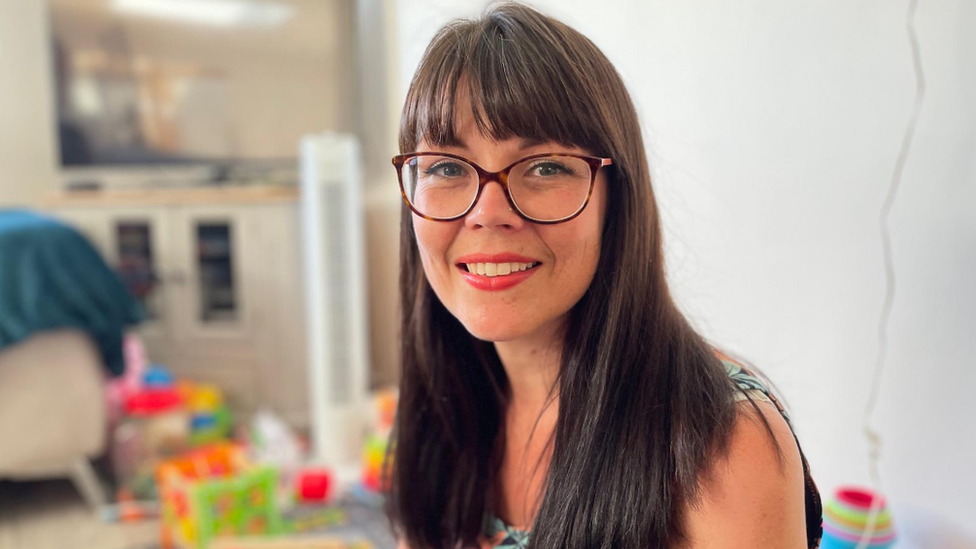
Heidi Rzysko said dealing with her son Bobby's allergies had been the hardest thing to cope with in her life
The little boy - now almost three - is allergic to a wide range of foods, including milk, eggs, wheat, soya and potato, as well as peas, beans, beetroot, avocado and banana.
He cannot be in contact with feathers, domestic animals and environmental allergens, like tree and grass pollen.
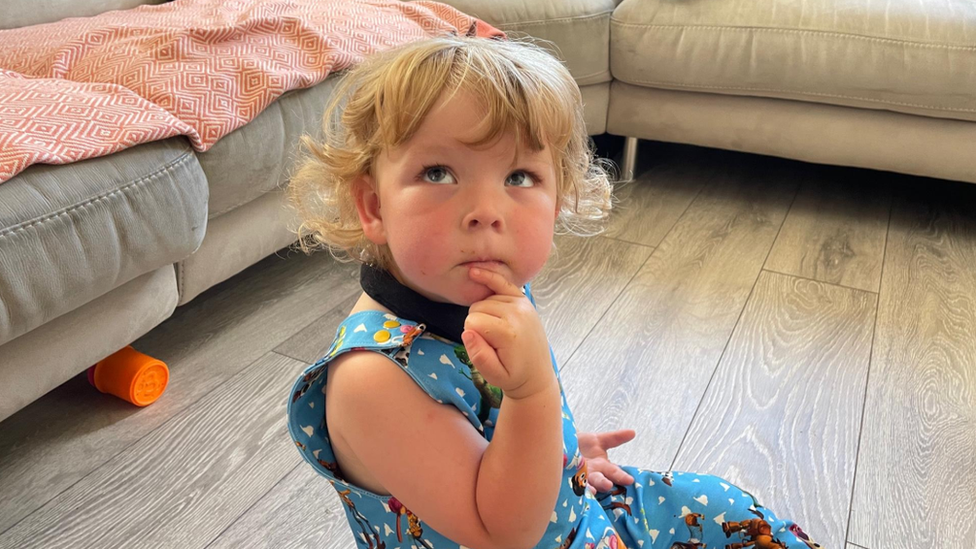
Bobby, who is nearly three, has a wide range of food and environmental allergies
"He doesn't have any freedom because we have to watch him all the time, we are very limited in our social life," Mrs Rzysko said.
"Meeting up with families and picnics isn't possible, we cannot go to cafes or play parks. We have to be vigilant.
"We have to remove eggs and cows' milk from the house - a small splash of milk has been really, really traumatic."
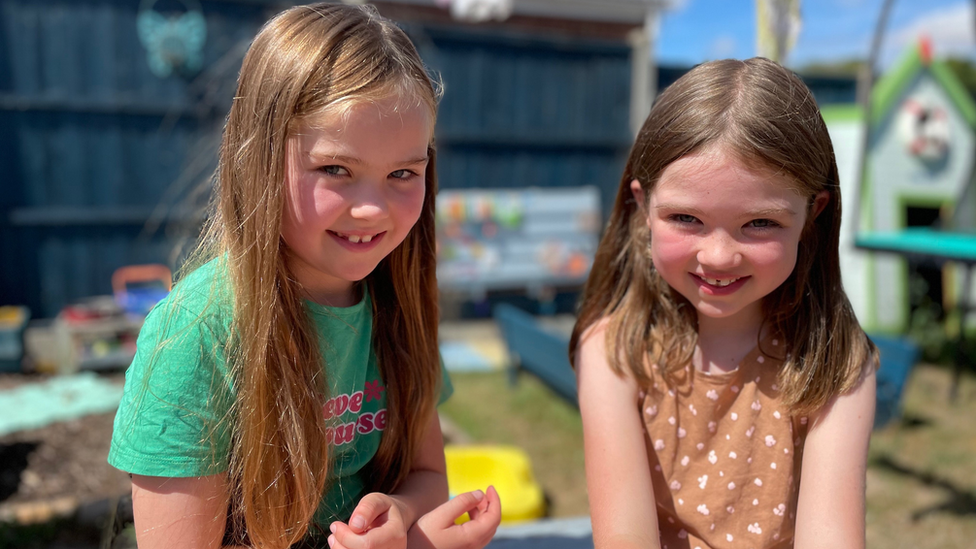
Bobby's sisters, Connie, nine, and Bettie, seven, live more limited social lives because of his allergies
The effects range from hives and rashes to a drop in blood pressure and stomach problems, which can take two weeks to clear, she added.
"Some people don't understand and they see it as an inconvenience," Mrs Rzysko said.

Dr John Chapman said the treatment, if successful, could help patients lead a normal life
Dr John Chapman, consultant paediatrician at the James Paget, said he went from holding one allergy clinic a month to "once or twice a week" in the 22 years he had worked there.
"There are quite a lot of reasons for it," he said.
"A lot of it is to do with our lifestyle, particularly the way we bring up babies in the first few months. We have an increased rate of Caesarean sections, which we know make it more likely to develop allergies or eczema.
"We also know that babies fed standard cows' milk formula in the first three days of their life are more likely to develop eczema and allergies and possibly asthma later on."
He said the "top three" have been joined by foods like kiwi and cashew, which have grown in popularity in the last few decades.
Allergies can be very serious, with anaphylactic reactions, or children with restriction to their diet, so they cannot take egg or milk or peanut every day.
"That affects people's lives on a day-to-day basis," he said.

Find BBC News: East of England on Facebook, external, Instagram, external and Twitter, external. If you have a story suggestion email eastofenglandnews@bbc.co.uk, external
- Published26 June 2022
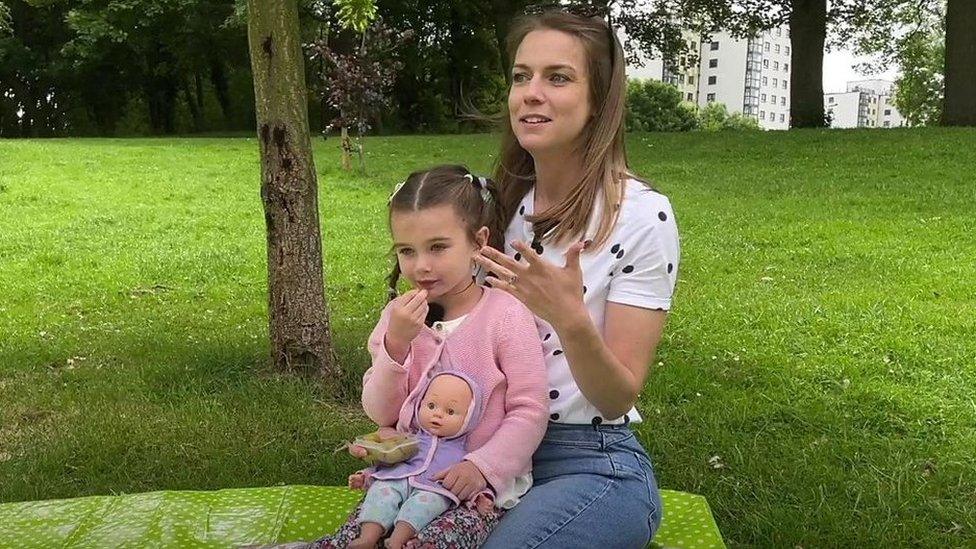
- Published23 June 2022
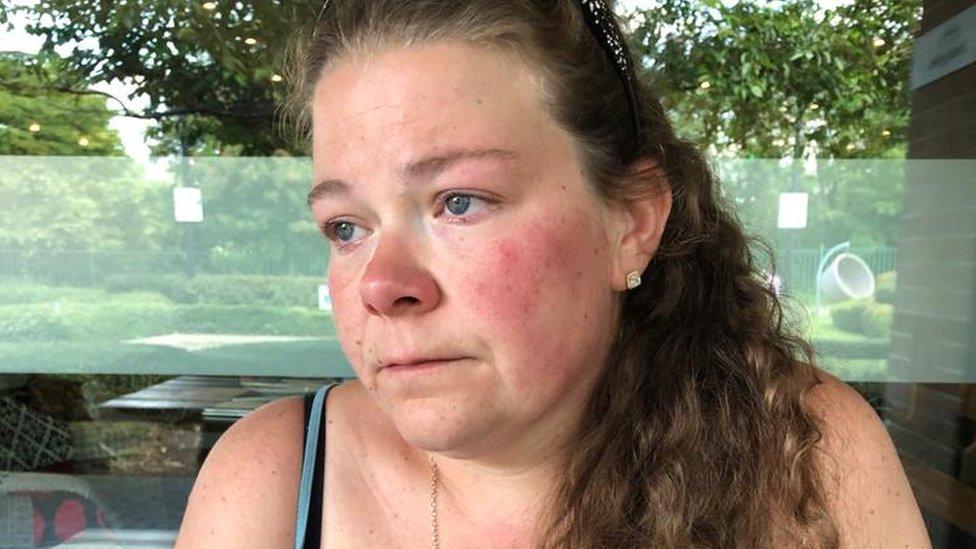
- Published18 May 2022
